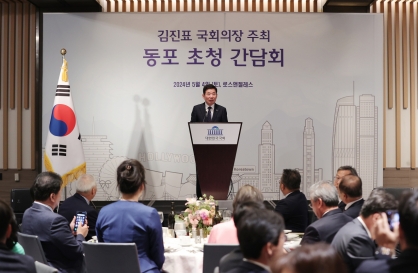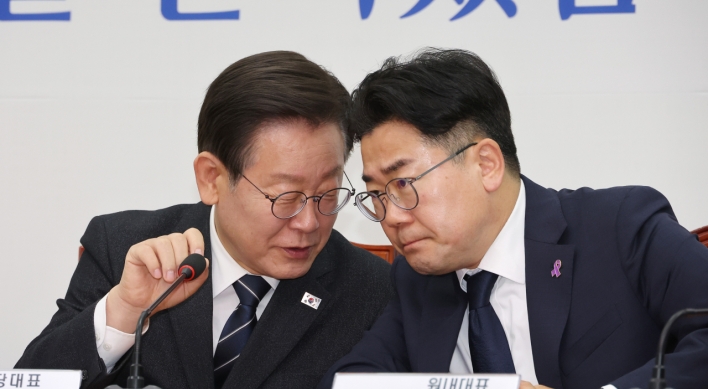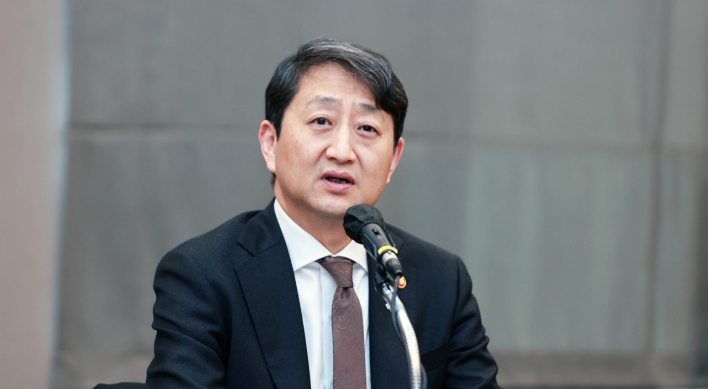To the French, the Francois Hollande who arrived in the U.S. for a state visit Tuesday sounds quite different from the man they elected president 21 months ago.
Back then, he castigated the world of finance as being “my real enemy,” promised to upend European economic austerity, and proudly declared: “I am a socialist.”
Today, he has made peace with the banks and is advocating a new business-friendly plan to reduce the cost of social programs for employers. Rather than expanding the economy, he has said he will continue to cut public spending through 2017. Last month he dropped the label of socialist and described himself as being “a social democrat.”
While the rest of the world buzzed about Hollande’s turbulent private life, in France, this ideological rebranding has attracted as much attention.
For the moment, the shift is primarily rhetorical. There has been no government reshuffling to oust leftist ministers who dislike the new approach, and no change in Hollande’s style of government. He has made no attempt to force through new measures, and continues to retreat at the first sign of trouble. That happened again last week, when the government backed down from plans to change a “family reform bill.”
So what does Hollande’s ideological change mean? The best-known form of social democracy in Europe is found in Scandinavia, where management and labor work together to find consensus on social and economic policy. In France, labor relations are far more fractious; just 8 percent of French workers belong to a union, a smaller proportion even than in the U.S.
Yet France stands out in Europe as having the highest number of working days lost to strikes. Hollande’s own explanation of what he stands for didn’t clear up matters. He has said only that he is “social, reformist, realist and, above all, patriotic.”
The French aren’t impressed. The president’s popularity ratings, already at a historical low, continue to fall; a poll published Feb. 6 showed that only 19 percent of voters still have confidence in him.
The president, however, isn’t the only French politician to be enshrouded in an ideological fog. Hollande’s political opponents on the right, too, are presenting a far from coherent vision as they battle over the nomination to be the presidential candidate in 2017. That fight between the leader of the Union for a Popular Movement Jean-Francois Cope and former Prime Minister Francois Fillon has sapped their support and sparked speculation that Nicolas Sarkozy, the one-term president beaten by Hollande in 2012, may run again.
This vacuum has allowed groups on the fringes to rush in. Public disgruntlement has rarely been higher; 87 percent of French voters now believe that mainstream politicians don’t care about what ordinary people think, according to a December survey by the CEVIPOF political institute. The far-right National Front led by Marine Le Pen, which campaigns on a tough anti-immigration platform and would take France out of the euro zone, is the main beneficiary of this sense of popular disenfranchisement. The party is leading in the polls for European Parliament elections in May.
This season of discontent has also led to the emergence of a number of highly disparate forces taking to the streets in protest, including Catholic bishops mobilizing against same-sex marriage and adoption and more shadowy anti-Semitic groups that have chanted slogans such as “Jews get out of France.”
Of course, the continuing stream of bad economic news is a contributor to the malaise. Hollande was unable to keep his promise to stem rising unemployment by the end of 2013; 3.3 million French men and women are currently out of work, about 400,000 more than when he took office ― and the unemployment rate of 10.8 percent is more than double that of Germany. Moreover, France remains the laggard as the euro-area economies show signs of recovery. The latest Markit Purchasing Managers’ Index, for example, shows the French economy continuing to contract even as Germany, Italy and Spain expand with increasing strength.
Yet ideology is important, too. Adopting the correct label has long been essential in French politics. Until the fall of the Berlin Wall in 1989, for example, the Communist Party was a permanent fixture in political life, especially in municipalities. On the right, being a “Gaullist” is a badge of honor.
Moreover, ideology bears some blame for the current economic weakness. France has long been one of the world’s primary beneficiaries of foreign direct investment, which has created an estimated 2 million jobs, but incoming flows collapsed last year, dropping by 77 percent, to less than $5.7 billion. International companies blame Hollande’s anti-business rhetoric and the much-publicized 75 percent tax on income exceeding 1 million euros ($1.36 million). Only 13 percent of managers for U.S. companies based in France say their corporate headquarters have a positive view of doing business in the nation, down from 56 percent in 2011, before Hollande was elected, according to a survey by Bain & Co. for the American Chamber of Commerce in France.
Whatever Hollande may mean by his new political label, French intellectuals such as Pierre Rosanvallon, a historian at the College de France, argue that social democracy is an outdated concept because of globalization, which has altered relations between companies and employees. Starting in the late 1990s, U.K. Prime Minister Tony Blair and German Chancellor Gerhard Schroeder reinterpreted what it meant to be a leftist leader. So far, there’s not even the suggestion that Hollande’s government will try to carry out the far-reaching market-friendly social policies that Blair and Schroeder put in place more than a decade ago to get those on welfare back to work or make the labor market more flexible.
Hollande’s U.S. tour ― which includes stops in Washington, at Thomas Jefferson’s Monticello estate in Virginia and in San Francisco ― may be something of a respite from his domestic troubles. But once he returns home, he will again face the critics, and have to demonstrate to his jaded and skeptical fellow citizens that he really has a plan, and that his latest shift isn’t merely more obfuscation.
By Peter Gumbel
Peter Gumbel, a Paris-based journalist, is the author, most recently, of “France’s Got Talent: The Woeful Consequences of French Elitism.” ― Ed.
(Bloomberg)
Back then, he castigated the world of finance as being “my real enemy,” promised to upend European economic austerity, and proudly declared: “I am a socialist.”
Today, he has made peace with the banks and is advocating a new business-friendly plan to reduce the cost of social programs for employers. Rather than expanding the economy, he has said he will continue to cut public spending through 2017. Last month he dropped the label of socialist and described himself as being “a social democrat.”
While the rest of the world buzzed about Hollande’s turbulent private life, in France, this ideological rebranding has attracted as much attention.
For the moment, the shift is primarily rhetorical. There has been no government reshuffling to oust leftist ministers who dislike the new approach, and no change in Hollande’s style of government. He has made no attempt to force through new measures, and continues to retreat at the first sign of trouble. That happened again last week, when the government backed down from plans to change a “family reform bill.”
So what does Hollande’s ideological change mean? The best-known form of social democracy in Europe is found in Scandinavia, where management and labor work together to find consensus on social and economic policy. In France, labor relations are far more fractious; just 8 percent of French workers belong to a union, a smaller proportion even than in the U.S.
Yet France stands out in Europe as having the highest number of working days lost to strikes. Hollande’s own explanation of what he stands for didn’t clear up matters. He has said only that he is “social, reformist, realist and, above all, patriotic.”
The French aren’t impressed. The president’s popularity ratings, already at a historical low, continue to fall; a poll published Feb. 6 showed that only 19 percent of voters still have confidence in him.
The president, however, isn’t the only French politician to be enshrouded in an ideological fog. Hollande’s political opponents on the right, too, are presenting a far from coherent vision as they battle over the nomination to be the presidential candidate in 2017. That fight between the leader of the Union for a Popular Movement Jean-Francois Cope and former Prime Minister Francois Fillon has sapped their support and sparked speculation that Nicolas Sarkozy, the one-term president beaten by Hollande in 2012, may run again.
This vacuum has allowed groups on the fringes to rush in. Public disgruntlement has rarely been higher; 87 percent of French voters now believe that mainstream politicians don’t care about what ordinary people think, according to a December survey by the CEVIPOF political institute. The far-right National Front led by Marine Le Pen, which campaigns on a tough anti-immigration platform and would take France out of the euro zone, is the main beneficiary of this sense of popular disenfranchisement. The party is leading in the polls for European Parliament elections in May.
This season of discontent has also led to the emergence of a number of highly disparate forces taking to the streets in protest, including Catholic bishops mobilizing against same-sex marriage and adoption and more shadowy anti-Semitic groups that have chanted slogans such as “Jews get out of France.”
Of course, the continuing stream of bad economic news is a contributor to the malaise. Hollande was unable to keep his promise to stem rising unemployment by the end of 2013; 3.3 million French men and women are currently out of work, about 400,000 more than when he took office ― and the unemployment rate of 10.8 percent is more than double that of Germany. Moreover, France remains the laggard as the euro-area economies show signs of recovery. The latest Markit Purchasing Managers’ Index, for example, shows the French economy continuing to contract even as Germany, Italy and Spain expand with increasing strength.
Yet ideology is important, too. Adopting the correct label has long been essential in French politics. Until the fall of the Berlin Wall in 1989, for example, the Communist Party was a permanent fixture in political life, especially in municipalities. On the right, being a “Gaullist” is a badge of honor.
Moreover, ideology bears some blame for the current economic weakness. France has long been one of the world’s primary beneficiaries of foreign direct investment, which has created an estimated 2 million jobs, but incoming flows collapsed last year, dropping by 77 percent, to less than $5.7 billion. International companies blame Hollande’s anti-business rhetoric and the much-publicized 75 percent tax on income exceeding 1 million euros ($1.36 million). Only 13 percent of managers for U.S. companies based in France say their corporate headquarters have a positive view of doing business in the nation, down from 56 percent in 2011, before Hollande was elected, according to a survey by Bain & Co. for the American Chamber of Commerce in France.
Whatever Hollande may mean by his new political label, French intellectuals such as Pierre Rosanvallon, a historian at the College de France, argue that social democracy is an outdated concept because of globalization, which has altered relations between companies and employees. Starting in the late 1990s, U.K. Prime Minister Tony Blair and German Chancellor Gerhard Schroeder reinterpreted what it meant to be a leftist leader. So far, there’s not even the suggestion that Hollande’s government will try to carry out the far-reaching market-friendly social policies that Blair and Schroeder put in place more than a decade ago to get those on welfare back to work or make the labor market more flexible.
Hollande’s U.S. tour ― which includes stops in Washington, at Thomas Jefferson’s Monticello estate in Virginia and in San Francisco ― may be something of a respite from his domestic troubles. But once he returns home, he will again face the critics, and have to demonstrate to his jaded and skeptical fellow citizens that he really has a plan, and that his latest shift isn’t merely more obfuscation.
By Peter Gumbel
Peter Gumbel, a Paris-based journalist, is the author, most recently, of “France’s Got Talent: The Woeful Consequences of French Elitism.” ― Ed.
(Bloomberg)
-
Articles by Korea Herald








![[KH Explains] Can tech firms' AI alliances take on Nvidia?](http://res.heraldm.com/phpwas/restmb_idxmake.php?idx=644&simg=/content/image/2024/05/07/20240507050619_0.jpg&u=)

![[Grace Kao, Meera Choi] Has money displaced romance on dates?](http://res.heraldm.com/phpwas/restmb_idxmake.php?idx=644&simg=/content/image/2024/05/06/20240506050233_0.jpg&u=)








